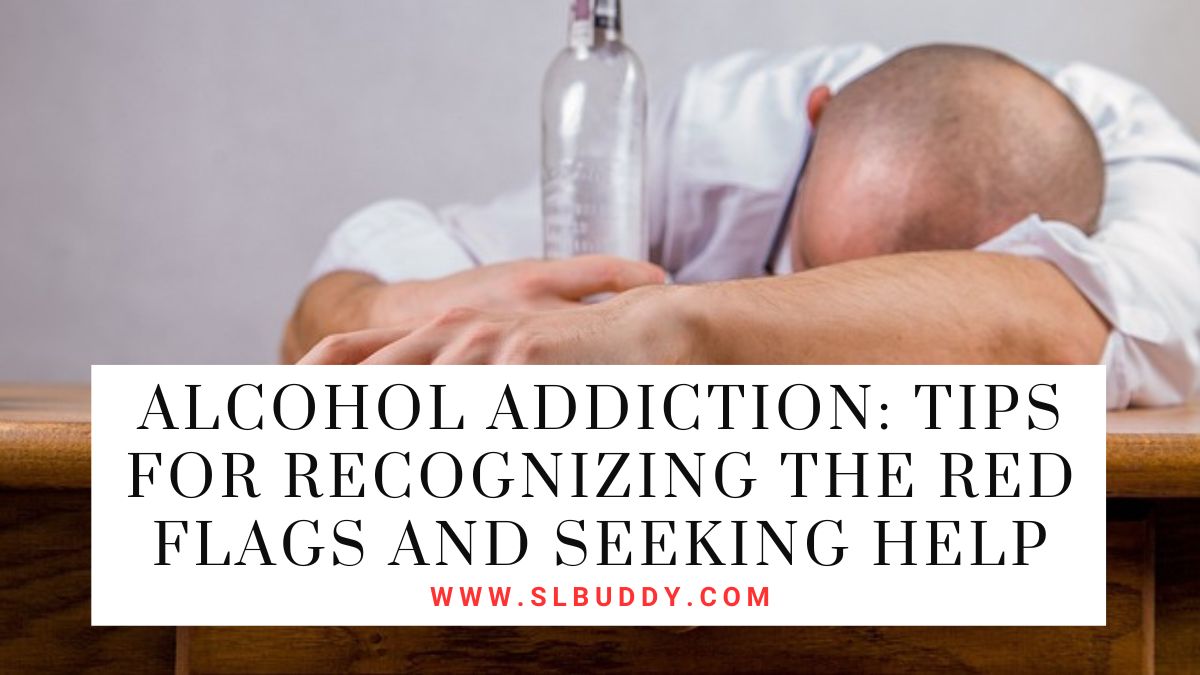
Alcohol has become a widely accepted and often glorified aspect of our social lives. From celebrations to casual gatherings, it seems like there’s always an opportunity to raise a glass.
However, what many people fail to realize is that alcohol consumption can quickly turn into addiction if not closely monitored and managed.
Millions of Americans struggle with alcohol use disorder (AUD), a number that highlights the pressing need for awareness about recognizing the warning signs of alcohol addiction before it spirals out of control.
Let’s take a look at some tips for recognizing the red flags of alcohol addiction and seeking help.
Seek Professional Evaluation and Rehab Programs
Healthcare providers can perform a thorough assessment to determine the extent of your alcohol use and its impact on your health and lifestyle.
Acknowledging the need for help is a vital step toward recovery, and it can lead to exploring personalized rehabilitation programs.
These programs are designed to provide the necessary resources and support to individuals on the path to sobriety. If you are from Bali, look for Rehab Bali best addiction treatment programs that cater to your specific needs.
Seeking professional evaluation and investing in addiction treatment may be challenging, but it can potentially change the course of an individual’s life for the better.
Monitor Drinking Habits and Set Limits
When drinking alcohol, always exercise self-awareness. Tracking the number of drinks you have during social events can shed light on potential overindulgence.
That said, you must establish clear limits for yourself to prevent unconscious escalation that could lead to dependency, including setting a specific number of drinks per occasion, having alcohol-free days, or even engaging in social activities that do not revolve around drinking.
Family and friends can play a supportive role by providing accountability and understanding the importance of these boundaries.
Adopting a mindful approach to drinking and recognizing personal triggers, such as stress or social pressures, is also important in maintaining control over alcohol use.
Evaluate Dependence
The most effective method for evaluating dependence is to reflect on the role alcohol plays in your daily life.
Ask yourself whether you rely on alcohol to unwind or deal with problems, or if you feel compelled to drink in almost any situation.
Notice if your social events are planned around the availability of alcohol or if there’s a persistent desire to drink to feel “normal.” An inclination to hide your drinking habits from others or feeling guilty about your consumption may also indicate a growing reliance.
If you experience withdrawal symptoms when not drinking, it’s a strong signal that your body is developing a physical dependence.
Taking a hard, honest look at these signs can be sobering as you realize the extent of your alcohol addiction.
Recognizing signs of alcohol addiction is crucial for seeking help and starting your journey toward recovery.
Once you’ve evaluated your dependence on alcohol and acknowledged the red flags, it’s essential to consider alcoholism treatment options. Treatment for alcoholism typically involves a combination of therapy, support groups, and sometimes medication.
Seeking professional help from therapists or addiction specialists can provide you with the guidance and support needed to overcome alcohol addiction.
Remember, you’re not alone in this journey, and there are resources available to help you reclaim control of your life from alcohol.
Awareness of Tolerance Levels
As alcohol consumption becomes a regular habit, your body may develop tolerance, meaning that you’ll need to drink more to achieve the same effect that smaller amounts once provided.
This escalating pattern is a red flag signaling a deepening addiction. In this case, you want to be attuned to this shift as it signifies the body’s adaptation to the presence of alcohol.
Conversely, if you recognize an increased tolerance, it’s paramount to reassess your drinking habits and consider seeking help.
Excessive alcohol intake can lead to severe health issues, including liver damage, cardiovascular diseases, and cognitive impairment.
Remain vigilant about your tolerance level and take proactive steps to prevent it from escalating.
Watch for Withdrawal Symptoms
Withdrawal from alcohol can be a sign of addiction and should not be ignored.
Going for extended periods without drinking or reducing the amount you normally drink can lead to physical and psychological symptoms.
Some of the most common ones include anxiety, depression, sweating, shaking, nausea, and vomiting.
In severe cases, withdrawal can also involve hallucinations and convulsions. If you experience these symptoms when attempting to cut back on drinking, seek professional help immediately.
Even get a family member or friend to accompany you to the doctor’s office if necessary.
Assess Impact on Lifestyle
Evaluating the influence of alcohol on your daily functioning is necessary. Look closely at your responsibilities—you may find that your job performance, personal relationships, and social engagements suffer due to your drinking habits.
It’s not uncommon for individuals dealing with alcohol addiction to prioritize their need for alcohol over professional obligations, familial duties, or previous passions and hobbies.
Subtle signs could include frequent tardiness, missed deadlines, or declining quality of work.
In personal realms, deteriorating relationships, increased conflict, and isolation are often consequences of addiction.
This loss of balance in life may not hint at an addiction problem and, even worse, exacerbate the psychological and emotional issues that contribute to the addiction itself.
Seek Feedback
Seeking honest feedback from those around you paints a clear picture of your relationship with alcohol. Often, we’re the last to recognize the severity of our situation.
Friends, family members, or co-workers can offer external perspectives on your drinking patterns that you may overlook or underestimate.
Inviting their input can sometimes reveal hard truths about the consequences your alcohol consumption has on interpersonal dynamics and their perceptions of you.
However, you want to approach these conversations with an open mind and a readiness to listen, not to defend.
It’s also advisable to choose a neutral, private setting and a time when you are both sober and can engage in a calm, focused dialogue.
Keep in mind that the goal is not to invite criticism but to gather insights that may prompt you to reflect on your behaviors and, if necessary, seek the assistance you need to regain control.
Acknowledge Emotional Shifts
Alcohol dependence can often manifest as mood swings, irritability, or sudden bursts of anger.
You might notice yourself becoming more emotionally unstable or using alcohol as a crutch to cope with emotional discomfort.
These shifts can profoundly affect personal relationships and professional interactions, further isolating you from support systems that are critical during recovery efforts.
Take stock of these emotional disturbances as they can be indicative of underlying issues that need to be addressed in conjunction with treating the addiction.
When you acknowledge these emotional patterns, you can take an important step towards understanding the psychological aspects of your addiction and finding the right resources to manage and overcome it.
Don’t miss: The Role of Massage Therapy in Mental Health
The bottom line
The journey toward overcoming alcohol addiction begins with the recognition of its signs and the acceptance of the need for help.
From monitoring your consumption and evaluating its impact on your life to discussing your habits with trusted friends and acknowledging emotional changes, these steps chart a course for recovery.
While the path to sobriety is personal and can be challenging, it is also one of transformation and empowerment.
With the right support and resources, you can reclaim your health and your life. Encourage yourself to take the first step today; a brighter tomorrow awaits.














